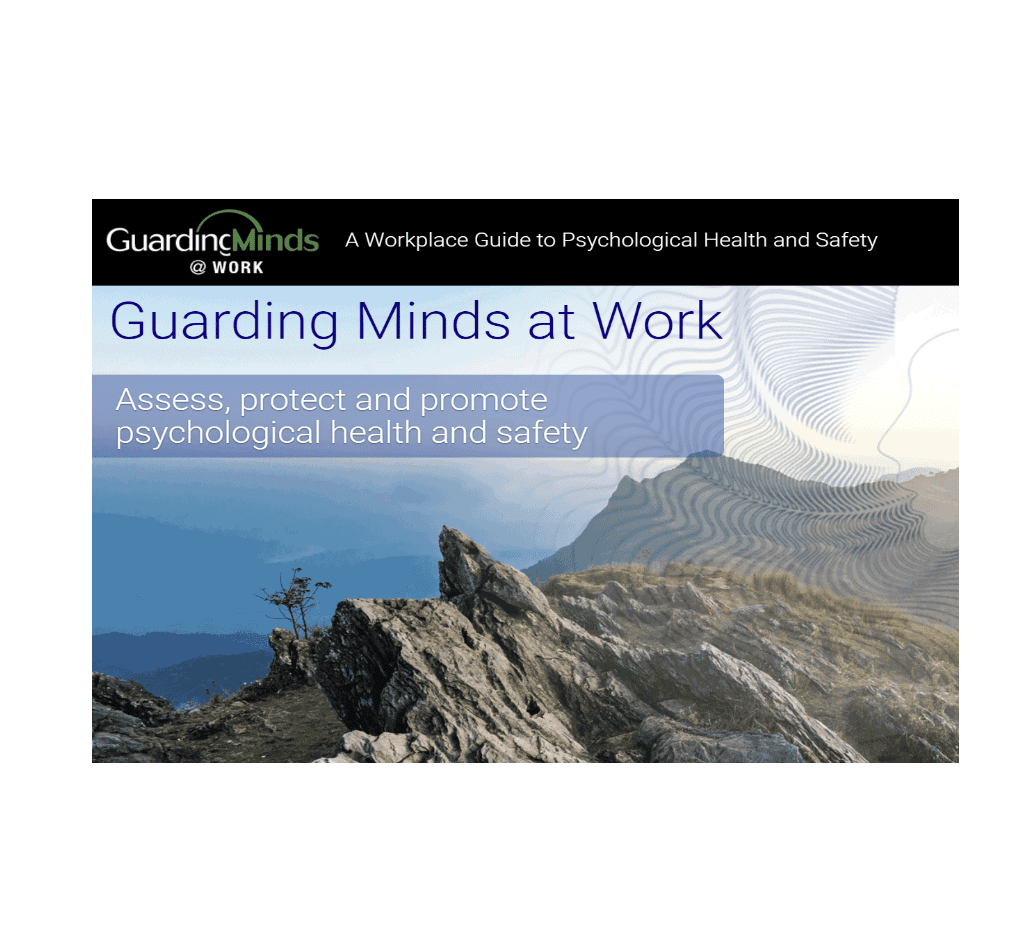
This section covers policies and tools related to stress, PTSD, burnout, and other issues of mental wellness of health care workers.

Revised Worklife Pulse Tool: A Guide
Accreditation Canada is committed to providing clients with an evidence-based, easy-to-use tool that takes a snapshot of key worklife factors in the organization.
Participating companies invest and receive activities, tools and resources (digital and physical) to engage their workforce around this critical issue. The toolkit involves planning support, kick-off materials, awareness-building materials, engagement activities and evaluation tools.
A Workplace Guide to Psychological Health and Safety, involving free online resources for employers, including a survey tool, strategies, worksheets and resources, designed to help assess, protect and promote psychological health and safety.
Expect Respect: Creating and sustaining an organizational culture of safety
The Expect Respect program creates an environment in which all staff feel supported in acknowledging and identifying incidents of disrespect and violence. The program supports a caring and firm approach to dealing with aggressive and disrespectful behavior.
Psychological Health and Safety: An Action Guide for Employers
This guide is informed by an evolving understanding of psychological health in the workplace and specifically by two sources of knowledge. We will walk with you through the steps of planning and implementing workplace interventions to protect psychological health and safety (PH&S).
A sample audit tool that may be used by organizations to conduct internal audits. This audit tool may be modified to suit the size, nature and complexity of the organization. The audit tool may also function as a “gap analysis” tool to highlight those areas that require further work to meet the requirements of this standard.
Effort-Reward Imbalance (ERI) as valuable indicator for healthy and satisfying nursing
The NEXT study used the ERI to provide health care organization culture indicators. The ERI instrument is a self-administered work stress assessment tool.
A Canada-Wide Survey of Workplace Psychosocial Conditions: Conference Presentation
Presentation by the Occupational Health Clinics for Ontario Workers, which highlights the results of a COPSOQ survey on the psychosocial conditions of the Canadian workforce.
This guide and resource kit will provide workers with a basic understanding and a place to start to learn about workplace stress and what to do about it. It is an introduction and action guide created by workers for workers.
StressAssess is a free, evidence-based online survey tool designed to assist workplaces in identifying psychosocial hazards that can lead to stress and mental injury, providing suggestions and pathways to address them and thus preventing harm.
In partnership with the Canadian Centre for Occupational Health and Safety (CCOHS), the Occupational Health Clinics for Ontario Workers Inc. have produced a smartphone application which will allow the user to fill out the COPSOQ survey.
Tools for Workers to Measure Stress Exposure
A presentation given by the Occupational Health Clinics for Ontario Workers to introduce the various tools available to workers to engage with the issue of workplace stress.
Jon Richards, Management of Workplace Violence Victims, 2003
This study aims to summarize information, research and practice relating to the management of workplace violence victims under a set outline. The objectives are to confirm the importance of victim management to minimize the consequences of workplace violence in the health sector.
Siegrist’s Effort–Reward Imbalance (ERI) model proposes that where there is an imbalance between work effort and reward, such that the effort is greater than the reward, work stress results, which may lead to a range of adverse health outcomes.
The Effort-Reward Imbalance model has been operationalized as a standardized self-report measure consisting of three psychometric scales: effort, reward and overcommitment.